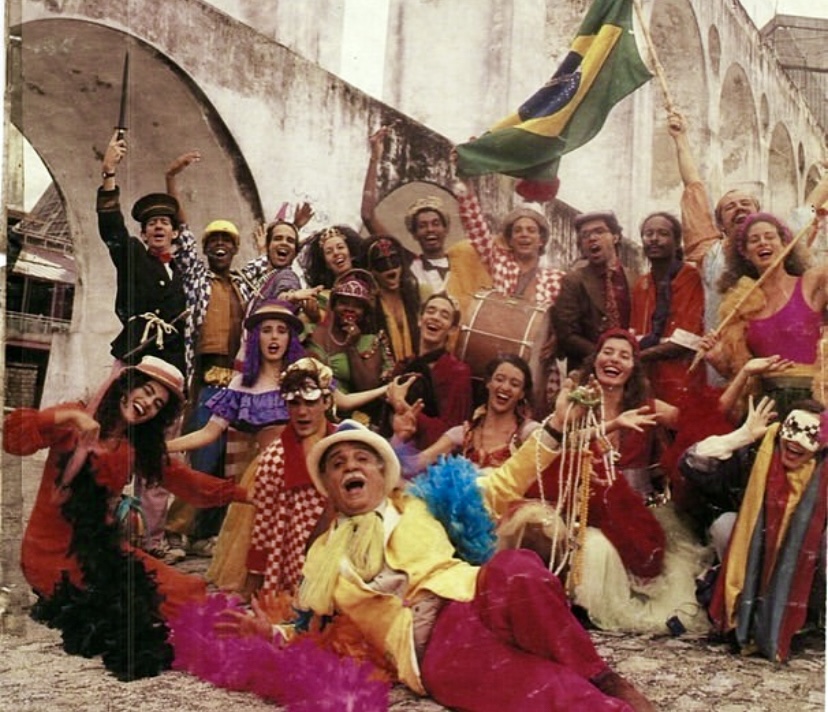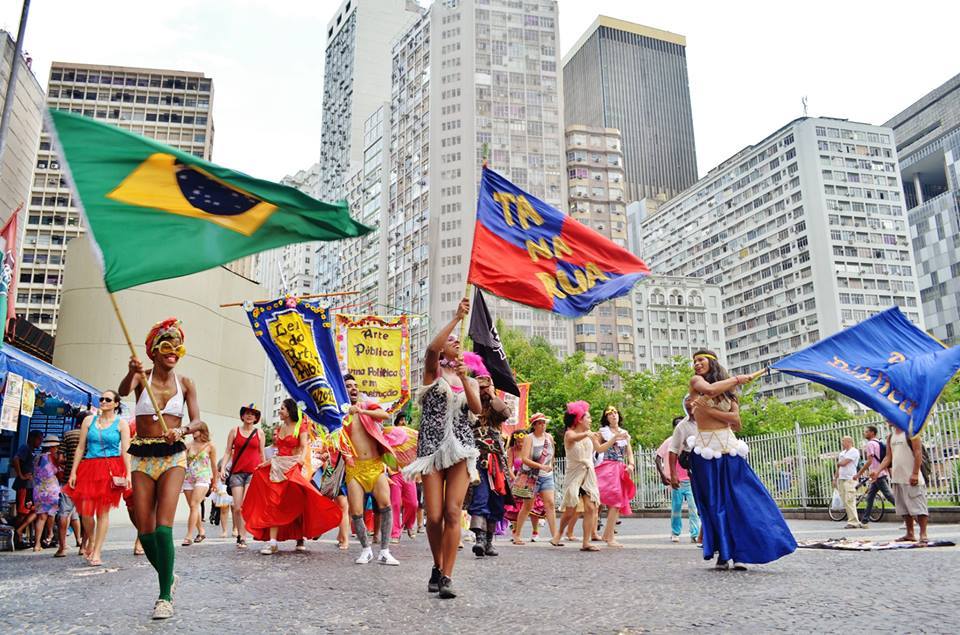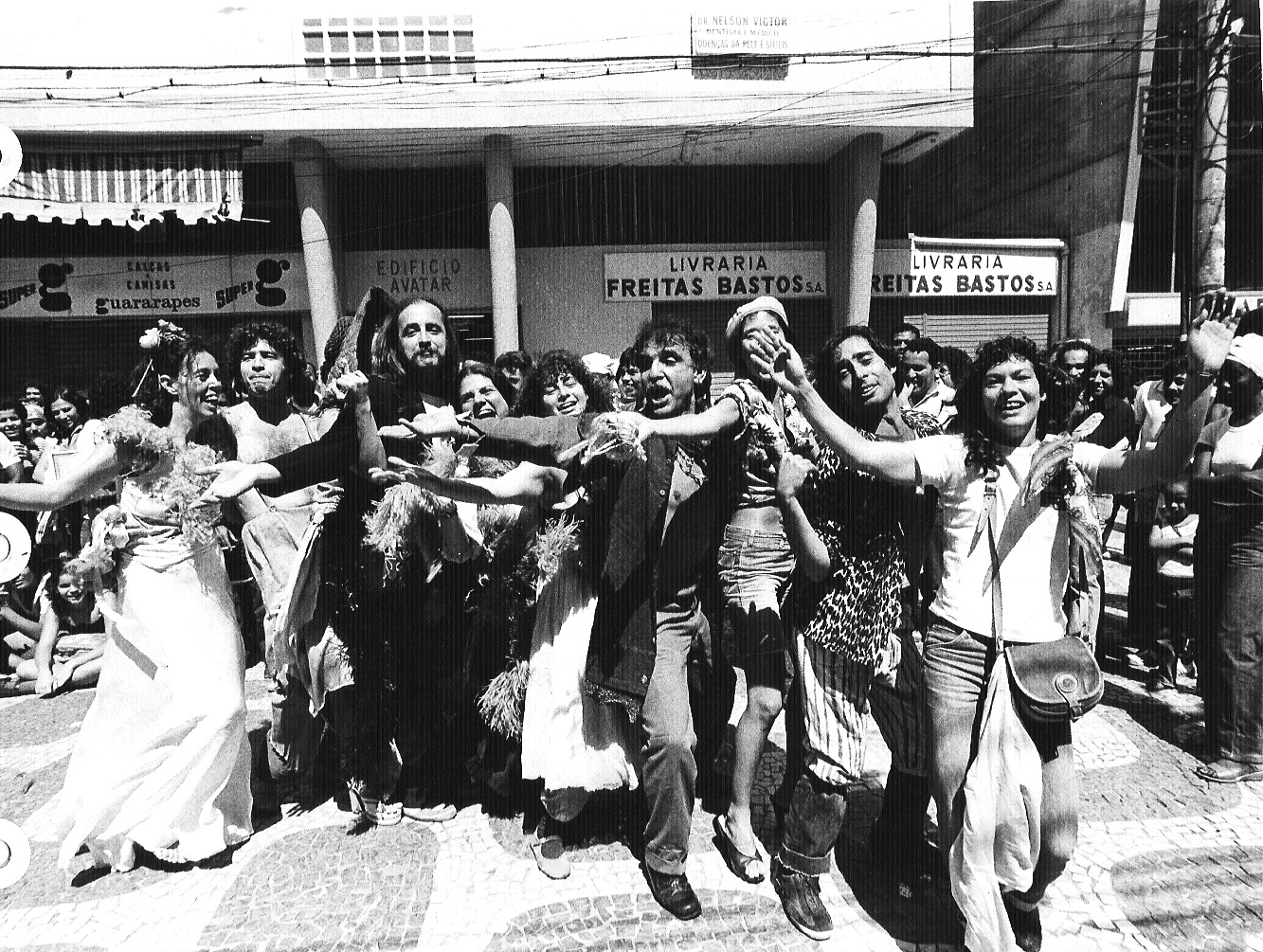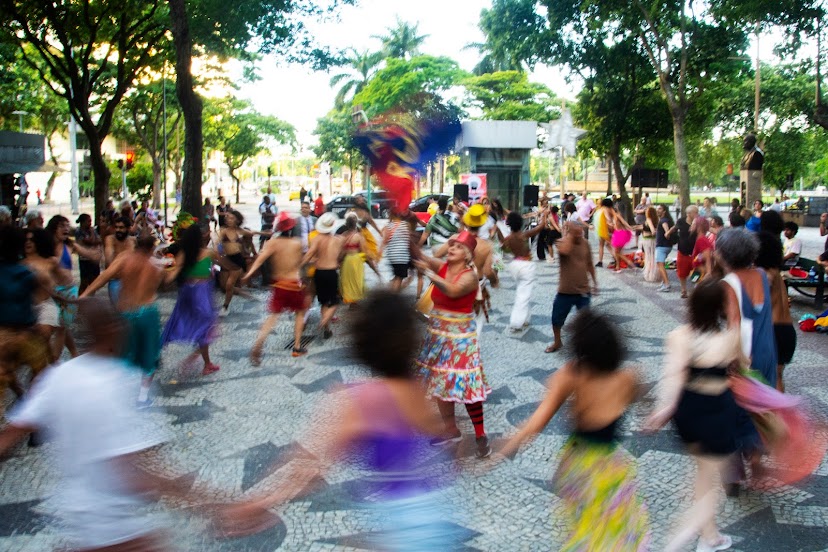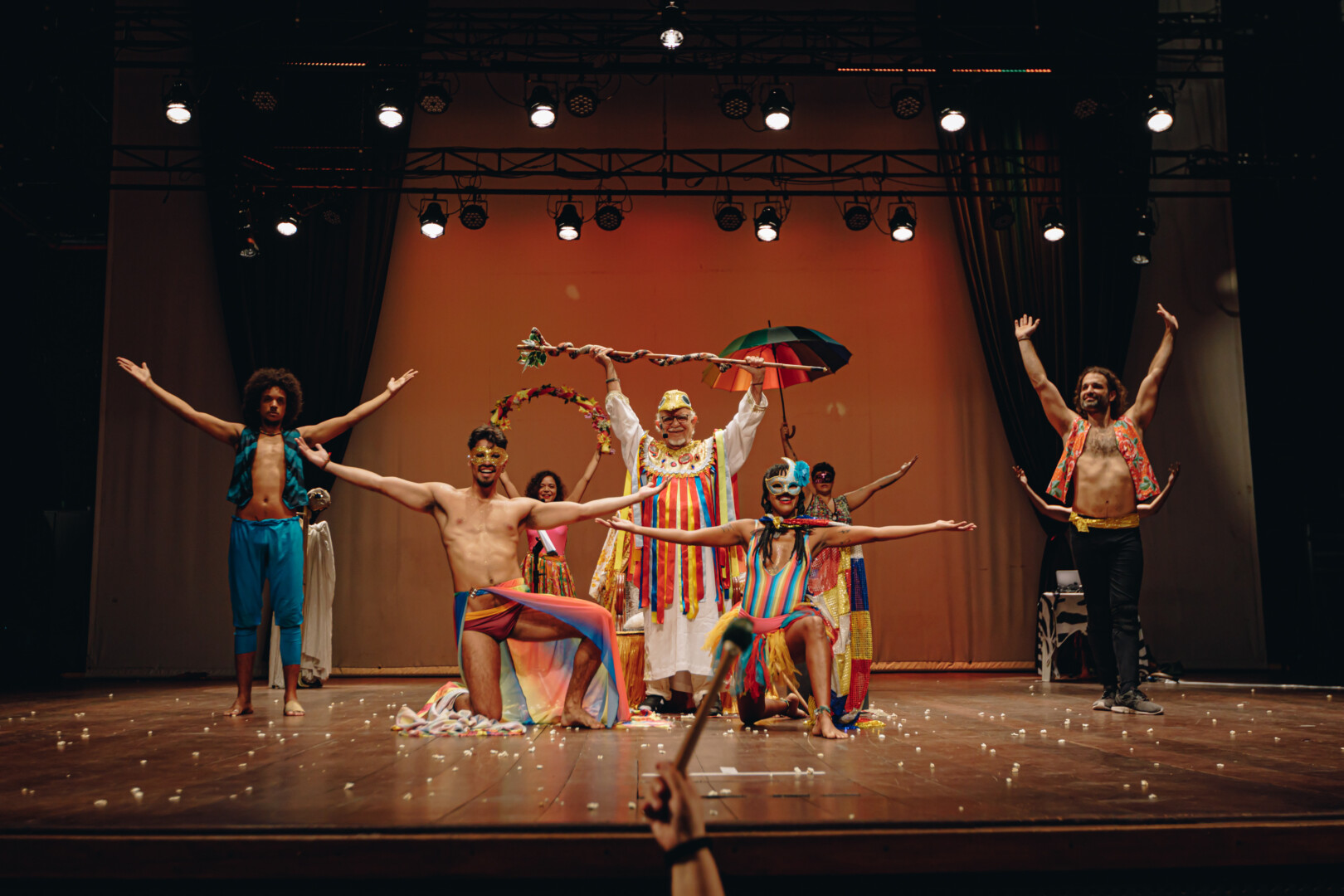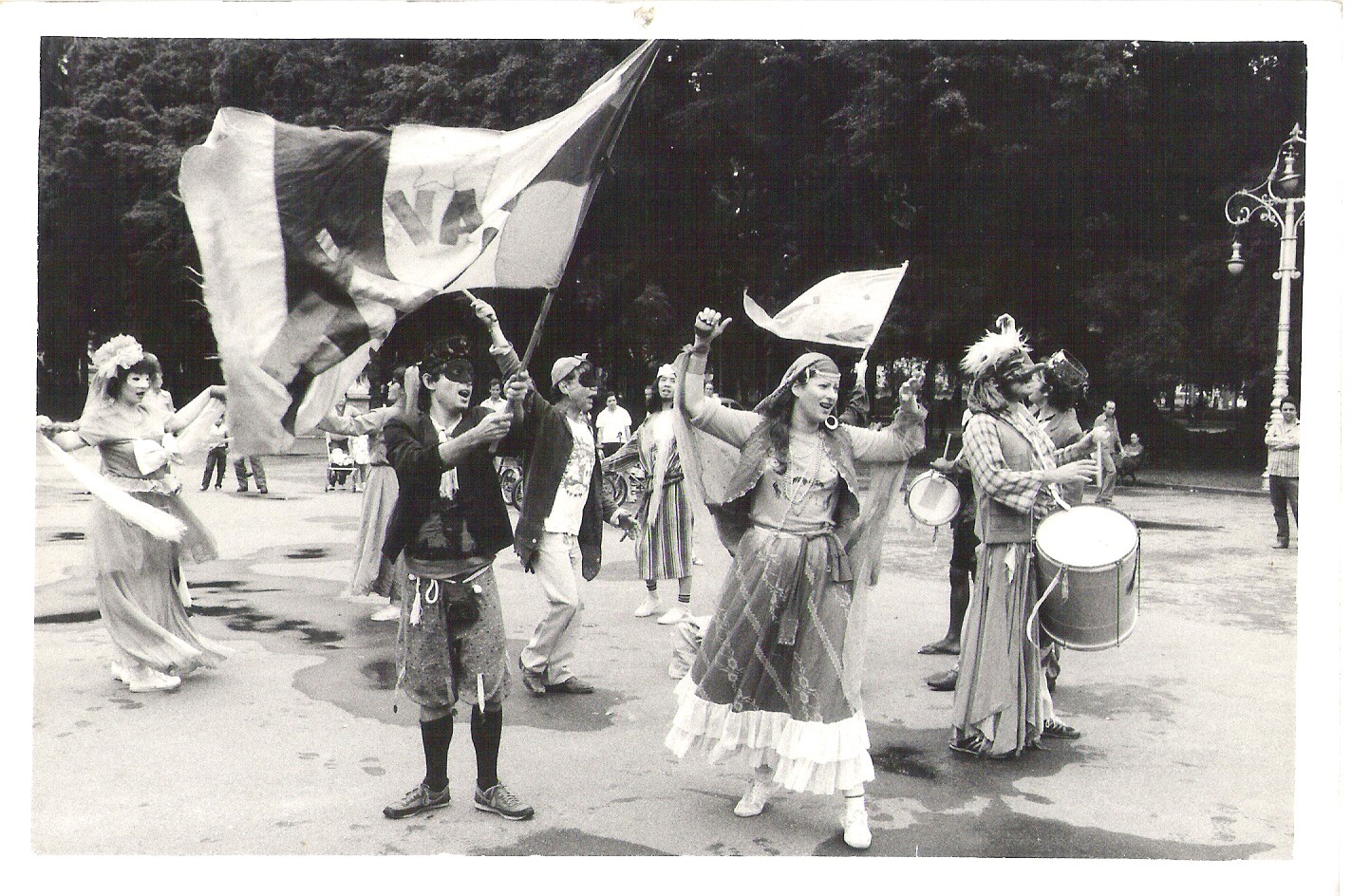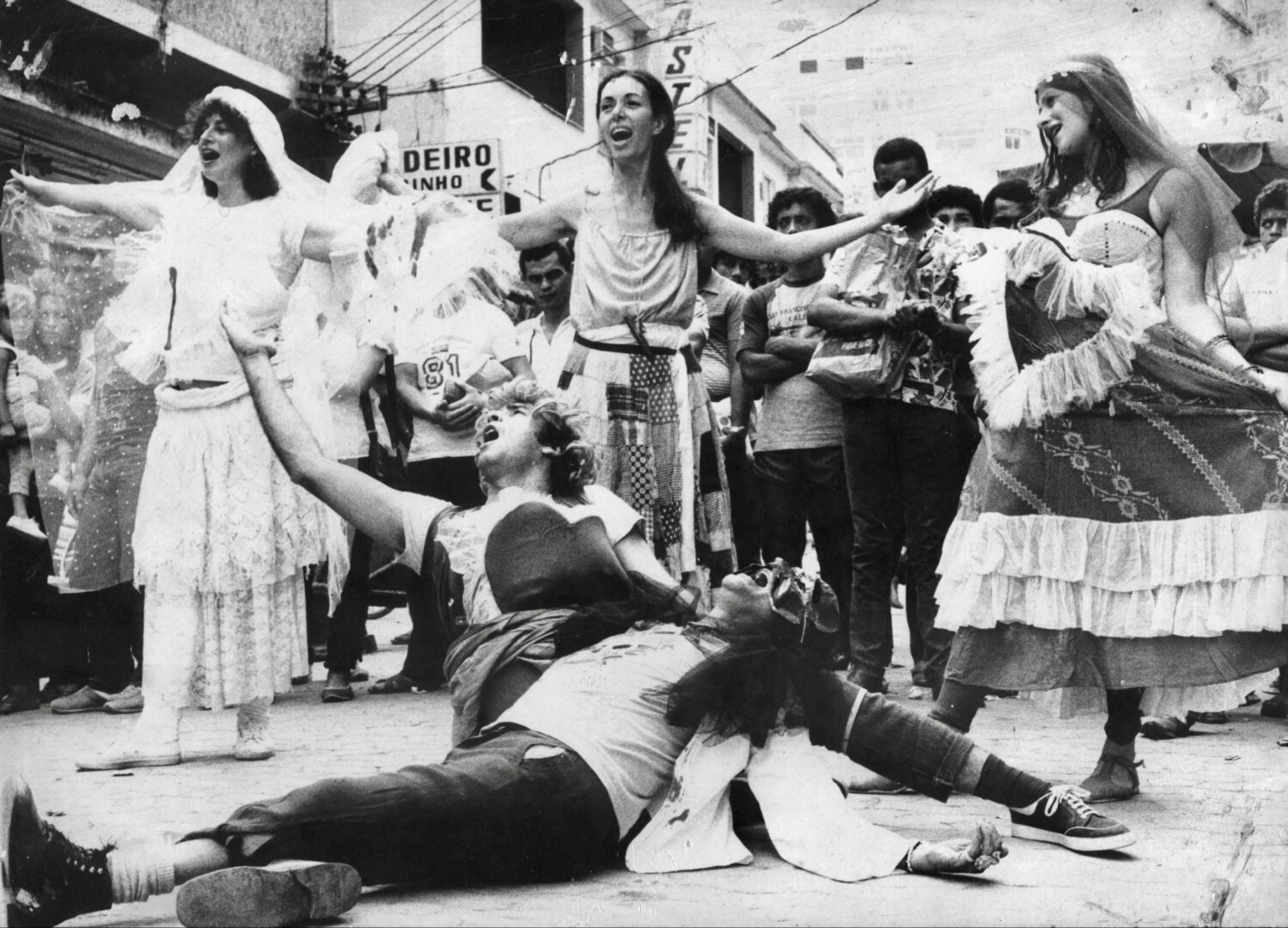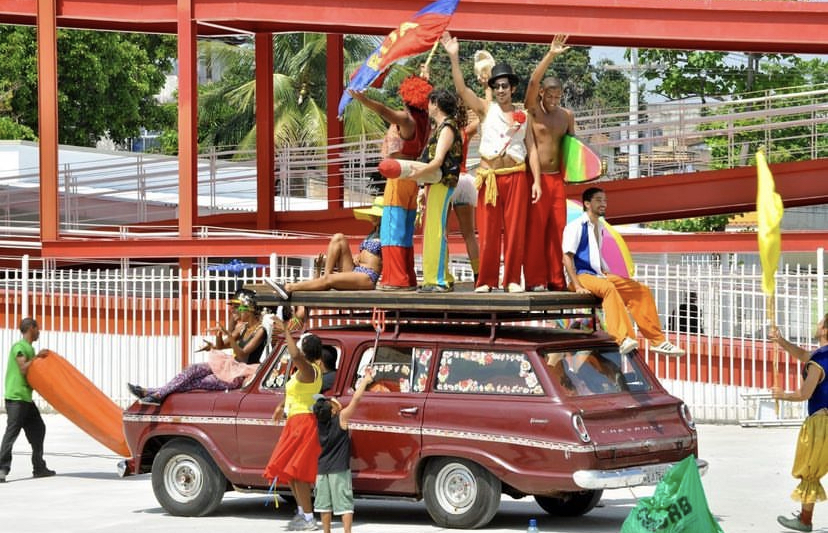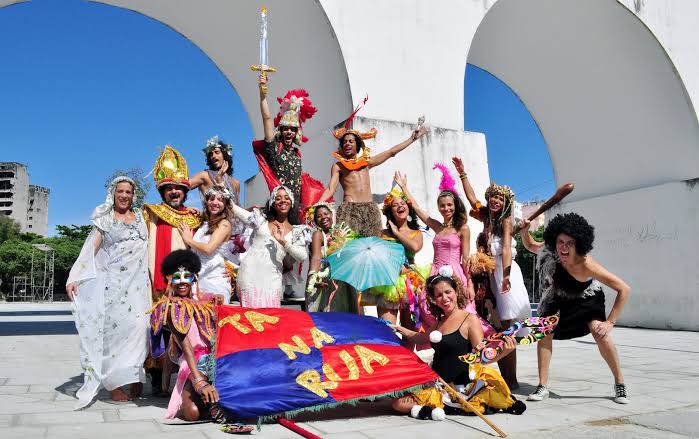Created in 1980, and nearing 45 years of existence, the Tá Na Rua Theater Group is dedicated to the creation, research, and training in street theater in Brazil. Combining the new and the old, the group weaves an eminently popular language that incorporates the roots of Rio de Janeiro’s and Brazil’s cultural traditions. This is paired with the development of methodologies and techniques for contemporary street art, creating a unique artistic language characterized by irreverence, a carnivalesque view of the world, and the immense improvisational skill of its actors.
Its formation is intrinsically linked to the vision of its coordinator and director, Amir Haddad, and is currently expressed mainly through the concept of Public Art, which he defines as: an art that is neither bought nor sold and comes to life through direct contact between the artist and/or their work with the public, without any distinction, in any and all places.
With its value recognized both nationally and internationally, Tá Na Rua was awarded the title of Intangible Heritage of the State of Rio de Janeiro in 2011, through Bill 3.093/10 by then-state representative Alessandro Molon (PT).
Read More
Tá Na Rua views theater as a pedagogy of transformative action: the spectator becoming an actor, taking into their own hands the shaping and discussion of their destiny. It is a popular theater with a narrative and dialectical language that builds its dramaturgy through the very process of action and reflection. Theater serves as an effective tool, enabling popular sectors to reclaim their self-expression in pursuit of their own cultural identity, free from dominant and hegemonic culture.
Tá Na Rua has always moved forward by raising questions about the role of theater in society, the craft of acting, the creative exercise of stage construction, the expansion of expressive possibilities, the dynamics of exchange, production, and learning within collective work, and the awareness of the historical and political nature of performance spaces. The group firmly believes in theater as a necessary and transformative art form, acting in the present to help build a different future.
“There are no spectators in the world. Everyone is an actor! The idea of the spectator exists to keep part of the population passive so that the other part, active, can dominate and write their story.” (Tá Na Rua, 1983)
